Resources
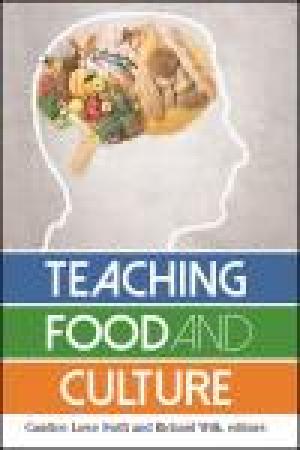
With the rapid growth and interest in food studies around the U.S. and globally, the original essays in this one-of-a-kind volume aid instructors in expanding their teaching to include both the "Teaching Food and Culture offers exciting, innovative pedagogical approaches to topics across the spectrum of the anthropology of food. Firmly grounded in the authors’ respective specialisms, collectively these chapters demonstrate the vital importance in the study of food of connecting multiple perspectives, theories and methods. The volume will be an indispensable resource for teachers in the anthropology of food and food studies. " - Jakob Klein, Department of Anthropology and Food Studies Centre, SOAS, University of London "As Food Studies courses multiply and growing numbers of students are eager to reflect critically on all things food, this book offers stimulating ideas for topics, readings, and assignments to instructors, both veterans and new to the field. The editors have gathered thoughtful contributions that reach out well beyond anthropology, providing useful pedagogical tools to all those who want to teach about contemporary society with and through food. " - Fabio Parasecoli, The New School latest scholarship and engage with public debate around issues related to food. The chapters represent the product of original efforts to develop ways to teach both with and about food in the classroom, written by innovative instructors who have successfully done so. It would appeal to community college and university instructors in anthropology and social science disciplines who currently teach or want to develop food-related courses. This book illustrates the creative ways that college instructors have tackled teaching about food and used food as an instructional device; aims to train the next generation of food scholars to deal with the complex problems of feeding an ever-increasing population; contains an interview with Sidney Mintz, the most influential anthropologist shaping the study of food. (From the Publisher)
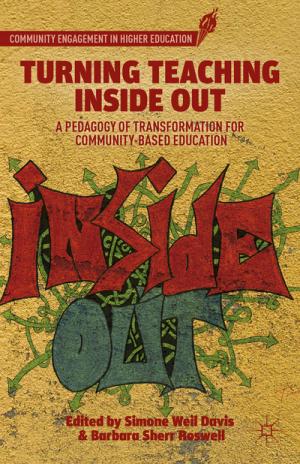
Click Here for Book Review Abstract: The Inside-Out Prison Exchange Program brings campus-enrolled and incarcerated students together as classmates in postsecondary courses built around dialogue, collaboration, and experiential learning. Contributors to this book consider the broader lessons that Inside-Out provides for community-based learning praxis, prison education and postsecondary teaching in general, both on campus and in community settings. An international network of practitioner-scholars probe the challenges and contradictions inherent in community-based work, but especially charged in the prison setting: the intersections of race, class and gender, and the tensions between teaching and activism, evaluation and advocacy, and compromise with and resistance to oppressive and dehumanizing systems. At a time when many in the Academy are seeking to deepen the impact of the community-based learning initiatives on their campuses, Turning Teaching Inside Out offers a model. (From the Publisher)

Teaching Information Literacy Threshold Concepts: Lesson Plans for Librarians is a collection designed by instruction librarians to promote critical thinking and engaged learning. It provides teaching librarians detailed, ready-to-use, and easily adaptable lesson ideas to help students understand and be transformed by information literacy threshold concepts. The lessons in this book, created by teaching librarians across the country, are categorized according to the six information literacy frames identified in the ACRL Framework for Information Literacy in Higher Education (2015). This volume offers concrete and specific ways of teaching the threshold concepts that are central to the ACRL Framework and is suitable for all types of academic libraries, high school libraries, as well as a pedagogical tool for library and information schools. (From the Publisher)
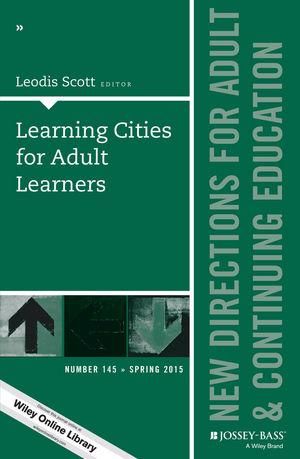
Click Here for Book Review Abstract: Learning cities call for a connection of adult education to elementary, secondary, and postsecondary institutions along with vocational and corporate workspaces. This volume considers how “learning cities for adult learners” could be created in America that promote lifelong learning and education. Encouraging a widespread approach to educate and learn across disciplines, within communities, and inside the minds of all people, topics covered include: • workplace and organizational learning, • community engagement and service learning, • public libraries and cooperative extension, and • leisure, recreation, and public health education. This is the 145th volume of the Jossey Bass series New Directions for Adult and Continuing Education. Noted for its depth of coverage, it explores issues of common interest to instructors, administrators, counselors, and policymakers in a broad range of education settings, such as colleges and universities, extension programs, businesses, libraries, and museums. (From the Publisher)
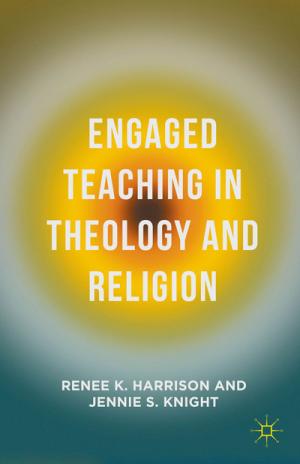
Click Here for Book Review Abstract: The goal of Engaged Teaching in Theology and Religion is to guide a process of self-reflection for scholars and teachers of theology and religion that leads to intentional, transformative teaching, dialogue, and reform in theological education and religious studies. Effective teaching approaches must address the selfhood of the teacher, as well as pedagogy, course content, and community engagement. This book sets itself apart from other works in the field because of this holistic approach. In addition to addressing these four areas, Harrison and Knight provide a variety of practices for teaching that take seriously students' cries for a more socially and personally relevant pedagogy and curriculum in a rapidly changing transnational world. The volume provides a well-reasoned and accessible re-thinking of teaching theology and religion so that schools of theology and departments of religion might better live out their stated goals of forming transformative, courageous, and thoughtful leaders and teachers in the twenty-first century. (From the Publisher)
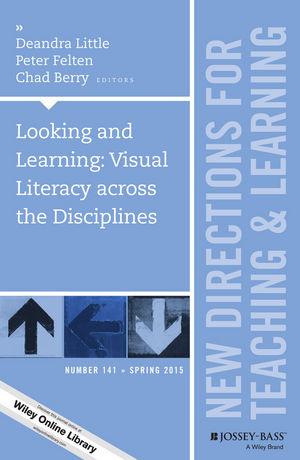
Click Here for Book Review Abstract: In this volume, the authors focus on the importance of inclusive teaching and the role faculty can play in helping students achieve, though not necessarily in the same way. To teach with a focus on inclusion means to believe that every person has the ability to learn. It means that most individuals want to learn, to improve their ability to better understand the world in which they live, and to be able to navigate their pathways of life. This volume includes the following topics: - best practices for teaching students with social, economic, gender, or ethnic differences - adjustments to the teaching and learning process to focus on inclusion - strategies for teaching that help learners connect what they know with the information presented - environments that maximize learners’ academic and social growth. The premise of inclusive teaching works to demonstrate that all people can and do learn. Educators and administrators can incorporate the techniques of inclusive learning and help learners retain more information. This is the 141st volume of the quarterly Jossey-Bass higher education series New Directions for Teaching and Learning. It offers a comprehensive range of ideas and techniques for improving college teaching based on the experience of seasoned instructors and the latest findings of educational and psychological researchers. (From the Publisher)
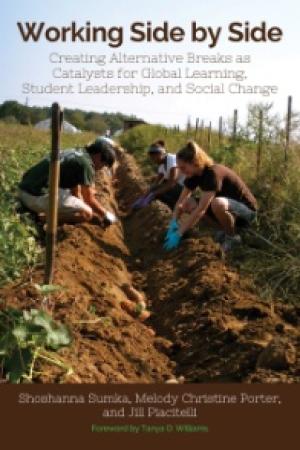
Click Here for Book Review Abstract: This book constitutes a guide for student and staff leaders in alternative break (and other community engagement, both domestic and international) programs, offering practical advice, outlining effective program components and practices, and presenting the underlying community engagement and global learning theory. Readers will gain practical skills for implementing each of the eight components of a quality alternative break program developed by Break Away, the national alternative break organization. The book advances the field of student-led alternative breaks by identifying the core components of successful programs that develop active citizens. It demonstrates how to address complex social issues, encourage structural analysis of societal inequities, foster volunteer transformation, and identify methods of work in mutually beneficial partnerships. It emphasizes the importance of integrating a justice-centered foundation throughout alternative break programs to complement direct service activities, and promotes long-term work for justice and student transformation by offering strategies for post-travel reorientation and continuing engagement. The authors address student leadership development, issue-focused education, questions of power, privilege, and diversity, and the challenges of working in reciprocal partnerships with community organizations. They offer guidance on fundraising, budget management, student recruitment, program structures, the nuts and bolts of planning a trip, risk management, health and safety, and assessment and evaluation. They address the complexities of international service-learning and developing partnerships with grassroots community groups, non-governmental and nonprofit organizations, and intermediary organizations. For new programs, this book provides a starting point and resource to return to with each stage of development. For established programs, it offers a theoretical framework to reflect on and renew practices for creating active citizens and working for justice. (From the Publisher)
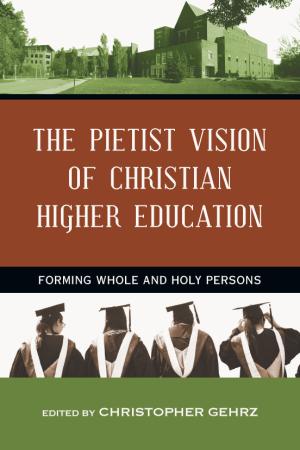
Click Here for Book Review Abstract: Pietism has long been ignored in evangelical scholarship. This is especially the case in the field of Christian higher education, which is dominated by thinkers in the Reformed tradition and complicated by the association of Pietism with anti-intellectualism. The irony is that Pietism from the beginning "was intimately bound up with education," according to Diarmaid MacCulloch. But until now there has not been a single work dedicated to exploring a distinctively Pietist vision for higher education. In this groundbreaking volume edited by Christopher Gehrz, scholars associated with the Pietist tradition reflect on the Pietist approach to education. Key themes include holistic formation, humility and openmindedness, the love of neighbor, concern for the common good and spiritual maturity. Pietism sees the Christian college as a place that forms whole and holy persons. In a pluralistic and polarized society, such a vision is needed now more than ever. (From the Publisher)
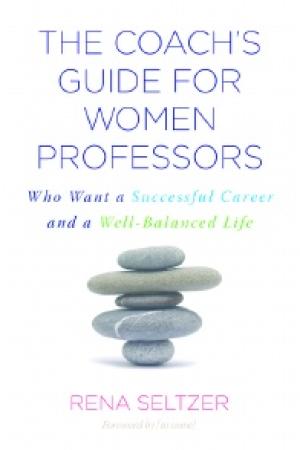
Click Here for Book Review Abstract: If you find yourself thinking or saying any of the following, this is a book you need to pick up. I know or suspect that I am underpaid, but I hate negotiating. I do everything else first and then write in the time left over. I’m not sure exactly what the promotion requirements are in my department. Since earning tenure, my service load has increased and my research is suffering. I don’t get enough time with my family. This is a practical guide for women in academe – whether adjuncts, professors or administrators – who often encounter barriers and hostility, especially if women of color, and generally carry a heavier load of service, as well as household and care responsibilities, than their male colleagues. Rena Seltzer, a respected life coach and trainer who has worked with women professors and academic leaders for many years, offers succinct advice on how you can prioritize the multiplicity of demands on your life, negotiate better, create support networks, and move your career forward. Using telling but disguised vignettes of the experiences of women she has mentored, Rena Seltzer offers insights and strategies for managing the situations that all women face – such as challenges to their authority – while also paying attention to how they often play out differently for Latinas, Black and Asian women. She covers issues that arise from early career to senior administrator positions. This is a book you can read cover to cover or dip into as you encounter concerns about time management; your authority and influence; work/life balance; problems with teaching; leadership; negotiating better; finding time to write; developing your networks and social support; or navigating tenure and promotion and your career beyond. (From the Publisher)
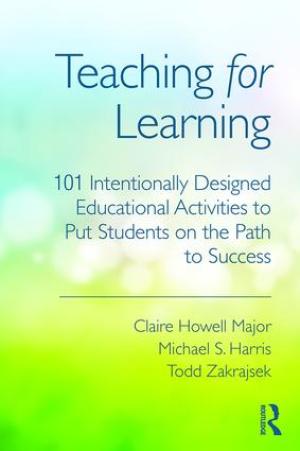
Click Here for Book Review Abstract: Despite a growing body of research on teaching methods, instructors lack a comprehensive resource that highlights and synthesizes proven approaches. Teaching for Learning fills that gap. Each of the one hundred and one entries: - describes an approach and lists its essential features and elements - demonstrates how that approach has been used in education, including specific examples from different disciplines - reviews findings from the research literature - describes techniques to improve effectiveness. Teaching for Learning provides instructors with a resource grounded in the academic knowledge base, written in an easily accessible, engaging, and practical style. (From the Publisher)
Wabash Center Staff Contact
Sarah Farmer, Ph.D
Associate Director
Wabash Center
farmers@wabash.edu